This is an excerpt from the Dharma talk given by ZM Dae Kwang at the Vienna Zen Center weekend retreat on July 15, 2022. *
I have a question, please. I’ve heard that you are a monk, and I would like to ask what moved you to this decision. Why did you decide to become a monk? What kind of feeling or thought or experience?
Dae Kwang, SSN: When you think about what’s going on in your life, then there are always these three things we’re talking about all day: old age, sickness, and death. What do you actually want and why? And what’s the result of that? If you want to stay young, how’s that going? Well, it goes okay for a while. But Zen is all about finding your true self and helping the world. What meditation does is, it doesn’t actually do anything for you, but it does expose to you what’s actually going on. So what do you want?
There’s nothing special about my life and why I became a monk. It’s the same old stupid stuff that’s happening to everybody. It’s just what do you about it. Becoming a monk is not special. It’s a kind of technique. So he (pointing to the person giving the introductory talk) talked about the divers and breathing techniques. Breathing is a technique that we use in Buddhism a lot. The Buddha did that kind of technique because he didn’t know what else to do. When you look at old age, sickness, and death – what the hell are you going to do? Even if you’re healthy, you’ll die and everybody around you will die, and everything that you want will be gone. We always summarize all that crap by saying old age, sickness, and death.
So the Buddha, before he becomes the Buddha, sees an old person, a sick person, and then he sees a dead person lying by the road. It’s interesting because in the West when you see dead people, they’re usually dressed up really well. They have good makeup. The box is nice. When I went to my mother’s funeral, I looked at her, and she hadn’t looked that good in about 15 years. That really hit me. So, that’s life. You’re always thinking that way, that I want something. But if you look at this I want something, you’ll notice it’s not going to result in anything. Except, the Buddha noticed it resulted in suffering.
If you watch your mind closely, you want something, and then it will work out, but then it goes away, or it doesn’t work out. Zen Master Seung Sahn always said: “A good situation is a bad situation”. Well, that doesn’t make any sense! Everybody wants a good situation. But if you just hang around for a few minutes, suddenly, that good situation would turn bad for sure. You don’t have to worry. That will happen. So that scared the hell out of him so much that he left home. Scared me, too. Probably scares everybody here. That’s why you’re here. You’re not here accidentally.
Simple technique
Why do you do something? So we use these techniques. Buddha used that very, very, very simple technique: “Just breathe in and breathe out and pay attention.” It’s simple. I can teach you that in just about less time than it takes me to say it in a sentence. Because you already know what it is. You don’t do it, but you know what it is. But that’s true of everybody else. So that’s some kind of technique.
And then there’s Soto Zen has even a simpler technique. You don’t pay attention to the breathing, you’re just aware. That’s the Chinese style of meditation. So simple that nobody would come to the Zen Center if we taught that because it’s too simple. As Zen Master Seung Sahn was asked “Why is Zen so difficult? You know, people will give up on it almost immediately. Why is that?” – Well, that’s because it’s so boring (laugh). In fact, what we’re teaching people is to be bored. If you sit this retreat this weekend, you’ll notice, boy, this is really boring. We’ll be sitting here and looking at the floor for half an hour. (laugh) (…)
So the Buddha leaves home, his real high-class life. He’s a prince, his dad’s the king, everything is going well, and then he sees these three things inside: “Wow, wait a minute, this isn’t going to last. What the heck is going on?” He doesn’t understand, and this not-understanding is very interesting because what it does is it kind of pulls you away from your desired mind for a second. It may only last a second. Usually, with me, it’s about half a second. Then you just let go because there’s no solution, right? Does anybody have a solution to old age, sickness, and death?
Religions talk about it. Like the solution of death is we’ll all go to heaven and what? For how long? We’ll be up there in heaven with this solution tucked away under our shirts, waiting for somebody to sign it on stage. That’s always going on. All the time. But the Buddha wouldn’t fall for that. That’s why we remember him for 2’600 years. So he couldn’t figure it out. In fact, not figuring it out is natural and correct. In fact, if you look at his life closely, he didn’t figure it out either. Therefore, he’s talking about meditation techniques.
Our techniques in the Kwan Um School of Zen are a little more complicated. We do keep breathing. That’s a good idea (laugh). So we’ll teach a breathing technique to you. And then also we’ll have you pay attention. Usually, we’ll even stick in a phrase inside your mind. So we might have you do a mantra, which is just repeating something. Either something you understand or something you don’t understand because you’re just repeating this inside your mind while you are breathing. Like Zen Master Seung Sahn did this chant that we call the Great Dharani. So it’s just a technique to keep one thing, to keep what we call a Just Now-Mind.
Really good croissants
Usually, we’re off somewhere. So you’re in Paris buying some really good croissants. Not like those fake croissants as they sell in Austria or New York City or San Francisco where I’m from. You know, like the real ones. You’re always thinking like this. Your mind will just shoot off somewhere, and then the simple thing is to just come back to Just Now. That’s too simple. But there’s something interesting about Just Now. And the interesting thing about Just Now, even me telling you this is going to shock me:
Give me one second of the past. Just one. And then give me one second of the future. Same story, right? In the future, I’m going to become a famous Zen master and move to Texas. Okay, that’s a good idea. So that’s like one second of the future. – But you don’t have that. Then what do you have? You have Just Now, right? That’s the third option. Give me it right now. You can’t do that either, right? (laugh) So it always is: “Oh, Zen is so negative. It’s always talking about how everything is empty and there isn’t anything.” – Well, all that’s doing is attempting to describe to you what you actually are which is this (clapping his hands) moment-“thing” which is not something that you can give me, obviously. But then why do that?
So the Buddha has this big question: “What am I?” And he sits for six years, practices for six years. He gets so frustrated by the teachers he’s met that he hasn’t figured it out, so he goes and sits underneath a tree. Then towards the end of that six years, one morning he looks up, sees the morning star, and then – BOOM! – he realizes: “This is it! That’s cool!” Then he keeps sitting there: “Man, this is great! There’s nothing like just now, you know?” (…)
Help people!
There’s a good story about a Hindu god called Chakra living up in Hindu heaven somewhere, and he looks down, and he sees the Buddha – the idiot, sitting underneath this tree, grooving on the moment. Chakra flows down to earth, stands in front of the Buddha, and says: “You have to get up and help people!” – Buddha doesn’t say anything, but Buddha does hear what the god said. The god realizes that and floats back up to heaven. Then the Buddha gets up and spends the rest of his life helping people.
Take away the “I want something”
Usually in Buddhism, the religion, we celebrate the birth of the Buddha. We celebrate the enlightenment of the Buddha, and strangely enough, we celebrate the death of the Buddha. But we don’t celebrate the most important thing, which is him getting up and helping people. So I proposed to the Singapore government that we need a new holiday. It’s called Get Up Day, and it’s the most important holiday of the year, actually. A lot of people don’t realize it yet, but they will. That’s what you do with this moment to help the world.
So, Buddhism means finding your true self. That’s Buddha, seeing the star and realizing that, “oh, this is what I really am, this moment,” and then getting up to help. That’s all of Buddhism. It’s very, very simple. Actually, it doesn’t make any difference what techniques you use. Arguing about techniques doesn’t lead anywhere. After all, modern Zen comes from the 6th Patriarch. He didn’t practice any technique. He was just walking by a monk who was standing in the corner reading a sutra. He listened to one line of it, then– BOOM! That’s where all of Zen comes from.
So the problem is not with the practicing. The problem is, “why to do it?” We come here to practice. It’s not meant to be completely unpleasant. It’s also not meant to be pleasant. This is called The Middle Path. It’s not too hard, it’s not too easy. Most time you’re going through life, it can be easy, or it can be hard, but it revolves around that I want something. So if you take away the “I want something”, and then you just do it, like the Nike shoe ad says, “just do it!”, then you get this big result and use that to help the world.
Just do it!
So that’s the point of the whole thing. With all these techniques that he’s talking about, the idea is to help people. (…) Why do it? That’s the important question. That is Buddhism. That is why it is called Mahayana Buddhism, which is great love, great compassion, and Bodhisattva action.
So that’s a technique question. But very important is why do you do the technique? Actually, the technique is not important at all. Helping people is what is important.
………
*Thanks to Lubot Kosut for recording and transcribing, and thanks to Knud and Chris for revising, translating, and setting up for printing.
Links:
- Weekend Retreat with ZM Dae Kwang @ Vienna Zen Center, July 15-17, 2022
- Dharma Talk of ZM Dae Kwang at the Vienna Zen Center, 2014 (YouTube + audio).
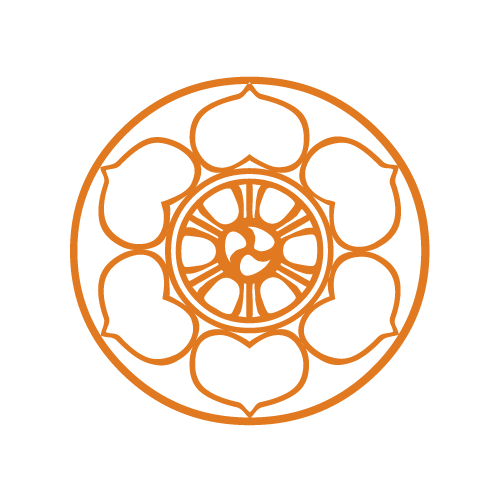
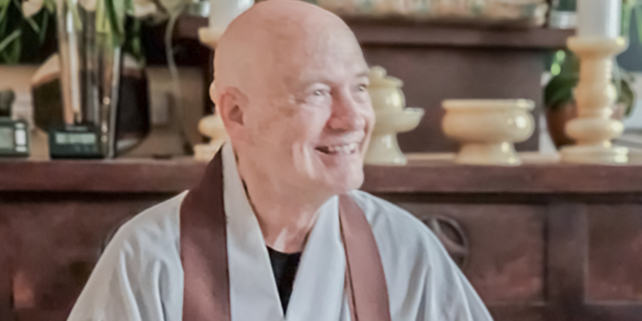 Vienna Zen Center
Vienna Zen Center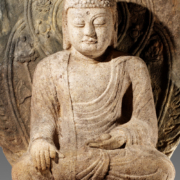 National Museum of Korea, Public Domain
National Museum of Korea, Public Domain  © Knud Rosenmayr
© Knud Rosenmayr 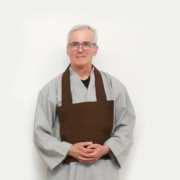 © Foto Fally
© Foto Fally 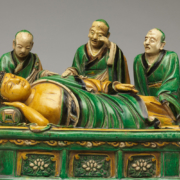 © Met, CC 1.0, Public Domain.
© Met, CC 1.0, Public Domain. 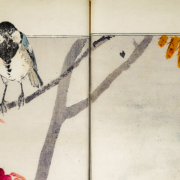 Metropolitan Museum of Art © Met, CC 1.0, Public Domain
Metropolitan Museum of Art © Met, CC 1.0, Public Domain 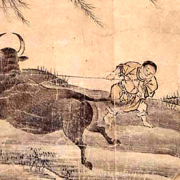 © Creative Commons
© Creative Commons 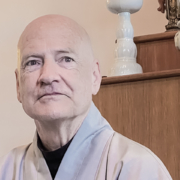
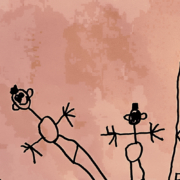 © Liam
© Liam  © Chris Zintzen
© Chris Zintzen @ ZZW 2022
@ ZZW 2022